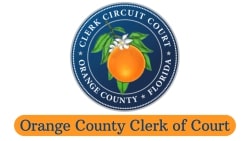Most civil disputes are determined without filing a lawsuit, and most cases are resolved without a trial. The Orange County Clerk of Court and other agencies offer several alternative dispute resolution (ADR) procedures to help people resolve their disputes without going to court. ADR is generally less formal and less expensive, and requires less time than litigation.
ADR is generally less formal and less expensive, and requires less time than litigation.
RAD may also provide further options to establish when and how the dispute will be resolved.
What Are the Advantages and Disadvantages of ADR?
The most commonly used ADR procedures are mediation, arbitration, neutral arbitration, and arbitration conferences.
Arbitration
In a binding arbitration technique, the parties waive their right to a trial and accept the arbitrator’s decision as final. In principle, there is no right to appeal the arbitrator’s decision.
Arbitration may be appropriate in certain cases. Arbitration is the best option in cases where parties want someone else to decide the outcome of the dispute for them, but prefer to avoid the formalities, time, and expense of litigation. It may also make sense in complex situations if the parties want a decision-maker with litigation training or experience.
Mediation
When mediation may be appropriate, mediation can be helpful if the parties wish to maintain a relationship. Mediation can, for example, be an alternative dispute resolution (ADR) process when family members, neighbors, or business partners have a dispute. Mediation is effective even when emotions prevent a resolution. An effective mediator can listen to the parties and help them communicate effectively and non-destructively.
Neutral Evaluation
The expert is usually a subject matter expert. Even if your opinion is non-binding, the parties often use it to negotiate a solution.
Settlement Conferences
Agreement meetings can be mandatory or voluntary. At both settlement conferences, the parties and their attorneys meet with a judge (or sitting judge) to discuss a possible dispute resolution. The judge does not decide the case but instead helps the parties evaluate the strengths and weaknesses of the case and negotiate a settlement. Comparison conferences are always helpful when a comparison is possible. Mandatory settlement conferences are usually held close to the scheduled hearing date.